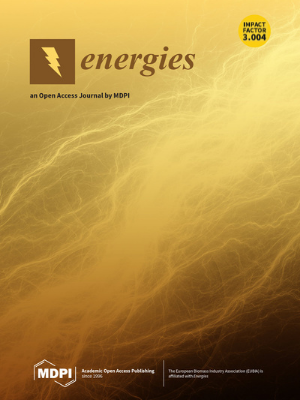Numerical Study on Compact Design in Marine Urea-SCR Systems for Small Ship Applications
IF 3
4区 工程技术
Q3 ENERGY & FUELS
引用次数: 0
Abstract
With increasingly stringent emissions legislation, such as that stipulated by the International Maritime Organization, for nitrogen oxide emission reduction in marine diesel engines, the imperative of curtailing nitrogen oxide emissions from marine diesel engines is intensifying. Consequently, the significance of aftertreatment technologies, including diesel particulate filters (DPFs) and selective catalytic reduction (SCR), is poised to grow substantially. In particular, a redesign is required to reduce the size of DPF and SCR systems for application in small ships. In this study, we varied the shape of the filters in DPF and SCR systems, aiming to achieve a distinct flow pattern and enable overall miniaturization. The performance metrics, including the nitric oxide (NO) reduction rate, NH3 slip rate, and pressure drop, of the redesigned models were compared with those of the conventional model. Computational fluid dynamics simulations were used to compare the performance of the redesigned model with that of the conventional model in terms of NO reduction and pressure drop. The redesigned system achieved a NO reduction rate of 6.9% below that of the conventional system, offering additional noteworthy benefits such as a 50% reduction in both pressure and overall length.小型船舶应用的船用尿素-SCR 系统紧凑型设计数值研究
随着国际海事组织等排放法规对船用柴油发动机氮氧化物减排要求的日益严格,减少船用柴油发动机氮氧化物排放的迫切性也在不断加强。因此,包括柴油微粒过滤器(DPF)和选择性催化还原(SCR)在内的后处理技术的重要性将大幅提高。特别是在小型船舶上应用时,需要重新设计以减小柴油微粒滤清器和选择性催化还原系统的尺寸。在这项研究中,我们改变了柴油微粒滤清器和选择性催化还原系统中过滤器的形状,旨在实现独特的流动模式和整体小型化。重新设计的模型与传统模型的性能指标进行了比较,包括一氧化氮(NO)还原率、NH3 滑移率和压降。通过计算流体动力学模拟,比较了重新设计模型与传统模型在减少 NO 和压降方面的性能。重新设计的系统实现了比传统系统低 6.9% 的氮氧化物减排率,并提供了更多值得注意的优势,如压力和总长度均减少了 50%。
本文章由计算机程序翻译,如有差异,请以英文原文为准。
求助全文
约1分钟内获得全文
求助全文
来源期刊

Energies
ENERGY & FUELS-
CiteScore
6.20
自引率
21.90%
发文量
8045
审稿时长
1.9 months
期刊介绍:
Energies (ISSN 1996-1073) is an open access journal of related scientific research, technology development and policy and management studies. It publishes reviews, regular research papers, and communications. Our aim is to encourage scientists to publish their experimental and theoretical results in as much detail as possible. There is no restriction on the length of the papers. The full experimental details must be provided so that the results can be reproduced.
 求助内容:
求助内容: 应助结果提醒方式:
应助结果提醒方式:


